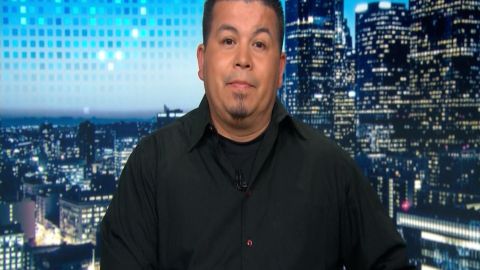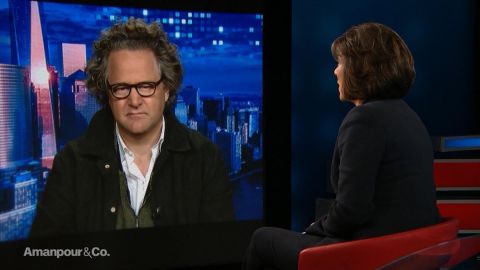Read Transcript EXPAND
CHRISTIANE AMANPOUR: You are exploring a really complicated era in the life time and the history of your own country, Germany. And here you are after the lives of others, which won the Oscar, which won all the major awards, all these years later, turning back to East Germany, let’s face it. It is East Germany. That one was the fall of the wall. This one was just about as the wall was going up, right at the end of World War II and beyond. So, what is it about this history, this moment, this time in your country that so fascinates you?
DONNERSMARCK: I feel that in a way as the Germans were in a unique position to tell the story of the 20th century because all the craziness and all the extremes happened in an intensified form in Germany, you know, the world was divided into two blocs. Germany was divided into two parts. There was even a city within Germany that was divided into two parts. So, you know, it’s almost as if we experienced it in an intensified form, and I find that makes for an interesting backdrop for stories, and this is about how art maybe can help us overcome political extremism and I thought it would be interesting to put it into a German background.
AMANPOUR: OK. So, let us talk about what promoted you or what prompted you to do this. It was, as you say, the discovery, trying to explore the origin of artistic creativity, especially in those circumstances. in East Germany and that part of your country at the time. And you talked about it was a line in Elia Kazan’s autobiography where he talked about his work with geniuses, talking about, you know, Miller and Brando and Tennessee Williams. He felt that working with them was, you know, the scab that formed on the wounds that life had dealth. It’s interesting to think up on that. Explained that.
DONNERSMARCK: You know what, it’s — you know, he said, you’re right, that somehow their artistic geniuses was the scab that had formed on the wounds of their life. And, you know, I think it’s a very apt metaphor because if the wound was major then the scab will very big and then the talent will be particularly strong. And here you have the story in my movie of an artist who was first shaped by the Nazis and experienced terrible things under that dictatorship and then experienced terrible things under the communist dictatorship and finally comes to the West and someone has to use all those terrible experiences to create great art. And I thought it was a way of exploring how maybe we could use the terrible things that happen in all of our lives, hopefully not as terrible as the ones of this — of my protagonist to — you know, to overcome the suffering.
About This Episode EXPAND
Christiane Amanpour speaks with furloughed Fire Captain Mark Munoz; British Justice Minister Rory Stewart; author Afua Hirsch; and director Florian Henckel von Donnersmarck. Michel Martin speaks with Baltimore Police Officer Monique Brown & Alex Long about “Charm City.”
LEARN MORE



